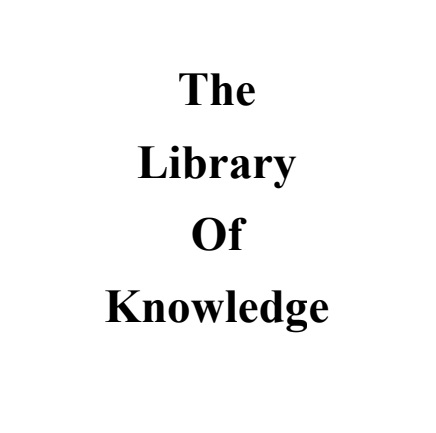The Role of Tech Startups in Contemporary Novels
In today’s rapidly evolving digital world, tech startups have emerged not just as economic powerhouses but also as rich material for storytelling. Contemporary novels increasingly feature startups at the heart of their narratives, using them as symbols of ambition, innovation, disruption, and sometimes, ethical ambiguity.
At Junkybooks, we find that the portrayal of tech startups in fiction often reveals deeper truths about society’s hopes and fears regarding technology, capitalism, and human nature. Let’s explore how modern novels incorporate tech startups and why these stories resonate so powerfully with readers today.
Tech Startups as the New Frontier
In the past, novels often focused on traditional businesses — banks, factories, media empires. Today, the new frontier is digital. Startups represent an ecosystem where young visionaries, with nothing more than a laptop and an idea, aim to reshape the world.
Contemporary writers tap into this energy, using startups as modern gold rushes where fortune, fame, and failure collide.
Startups in novels are often depicted as places of intense creativity but also crushing pressure, embodying both the dream of limitless possibility and the danger of burnout.
Books like "The Startup Wife" by Tahmima Anam and "Uncanny Valley" by Anna Wiener show startups as exciting but ruthless environments, where idealism often clashes with market realities.
Characters Defined by the Startup Culture
1. The Visionary Founder
One of the most iconic figures in tech startup novels is the founder — charismatic, driven, and often deeply flawed.
These characters are typically based on real-world tech titans like Elon Musk, Mark Zuckerberg, or Elizabeth Holmes.
In fiction, the founder archetype is both inspiring and cautionary: a figure who dreams of changing humanity but often wrestles with arrogance, blind ambition, and ethical compromises.
Writers use these characters to explore questions like: What happens when one person’s vision reshapes millions of lives? At what cost?
2. The Loyal Developer
Behind every great tech idea are the engineers who build it.
Contemporary novels often spotlight the coders, developers, and designers whose talents make innovation possible but whose contributions are sometimes overshadowed by flashy CEOs.
These characters often face moral dilemmas: should they stay loyal to a questionable vision, or walk away and risk their careers?
This tension creates powerful internal conflicts and drives plot twists.
3. The Burnout Survivor
Startup life is notoriously intense — long hours, minimal sleep, immense pressure.
Many novels portray characters who grapple with burnout, depression, and disillusionment, challenging the glorified image of startup culture.
In books like "Uncanny Valley", readers see the emotional cost of life in the startup ecosystem, where the pursuit of "changing the world" can lead to personal collapse.
How Startups Drive the Plot
1. Innovation vs. Ethics
A common theme in startup-centered novels is the tension between innovation and ethics.
Characters create revolutionary products — AI systems, social media platforms, biotech inventions — but must confront the unintended consequences of their creations.
In "The Every" by Dave Eggers, the startup’s quest for total transparency and efficiency leads to dystopian control.
The plot often hinges on the question: Just because we can build it, should we?
2. The Race Against Time
Startups live and die by their speed.
Authors often use this urgency to inject adrenaline into their stories: characters must hit user growth targets, secure funding, beat competitors, or ship products before time runs out.
This race against the clock fuels suspense and mirrors the breakneck pace of real-world tech development.
3. Betrayal and Power Struggles
Startups may start with idealistic visions, but as they grow, politics creep in.
Power struggles among co-founders, betrayals for equity stakes, and boardroom coups are common plot devices in tech novels.
These betrayals add a layer of Shakespearean drama to the startup story, revealing how ambition can corrode even the closest partnerships.
Themes Emerging from Startup Fiction
1. The Myth of the Meritocracy
Many novels critically examine the belief that the startup world is a pure meritocracy where only the best ideas and hardest workers succeed.
Instead, authors show how privilege, bias, and luck often play a bigger role than skill alone.
Characters from marginalized backgrounds frequently face invisible barriers, challenging the startup world’s self-image as an egalitarian paradise.
2. Disruption at What Cost?
"Disruption" is a buzzword celebrated in the tech world, but contemporary fiction questions what disruption really means.
Who benefits from breaking old systems? Who gets hurt?
Novels explore the darker side of innovation — displacement, job loss, privacy violations — reminding readers that every technological leap has consequences.
3. The Search for Meaning
Many characters in startup novels realize that creating the next big app or platform doesn’t necessarily lead to happiness or fulfillment.
After the IPOs, the millions of downloads, and the media adoration, they are left asking: What was it all for?
This existential questioning provides emotional depth and makes the stories more than just chronicles of success or failure.
Examples of Novels Featuring Tech Startups
Here are a few standout examples where tech startups play a central role:
-
"The Startup Wife" by Tahmima Anam: A witty and sharp look at startup culture, gender dynamics, and the cost of ambition.
-
"The Circle" and "The Every" by Dave Eggers: Dystopian tech companies where utopian ideals spiral into control and surveillance.
-
"Uncanny Valley" by Anna Wiener: A memoir-like novel showing the human side of Silicon Valley’s obsession with innovation.
-
"The Warehouse" by Rob Hart: While more focused on an Amazon-like corporation, the startup spirit of ruthless efficiency and growth permeates the narrative.
-
"Startup" by Doree Shafrir: A satirical take on the tech world’s obsession with success, youth, and image.
Why Readers Are Drawn to Startup Stories
Startup-centered novels resonate because they tap into universal themes: ambition, risk, betrayal, idealism, and identity.
In an age where apps and tech companies dominate our daily lives, reading about the messy, complicated humans behind these innovations feels deeply relevant.
These novels also allow readers to engage with the ethical debates surrounding technology in a more intimate, emotionally charged way than news articles or think pieces.
Through characters’ triumphs and failures, readers confront their own hopes and fears about the tech-driven future.
The Future of Startups in Fiction
As technology continues to evolve, so too will its literary portrayal.
We can expect future novels to explore:
-
AI-driven startups: Companies built around artificial intelligence products.
-
Biotech and genetic startups: Fiction delving into CRISPR, designer babies, and life extension.
-
Climate tech startups: Entrepreneurs trying to save (or exploit) a planet in crisis.
-
Decentralized startups: Companies without traditional hierarchies, run on blockchain principles.
Authors will keep pushing the boundaries of how startups are imagined — just as startups themselves push the boundaries of innovation.
Conclusion: Tech Startups as Modern Mythology
At Junkybooks, we believe that contemporary novels about tech startups are creating a new mythology for the digital age.
Just as classic literature mythologized kings, warriors, and explorers, today’s fiction mythologizes coders, founders, and dreamers chasing unicorn status.
Through success stories, cautionary tales, and everything in between, startup novels capture the thrills and perils of building something new in a volatile, interconnected world.
Whether you dream of founding the next tech empire or simply want to understand the forces reshaping society, these stories offer powerful insights — and unforgettable journeys.








